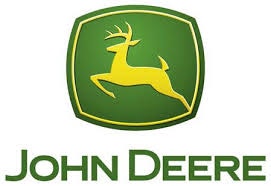The world’s largest farm equipment manufacturer, Deere & Company (NYSE:DE). has proven itself to be a great investment in the economic recovery, having gone from its 2009 low of $24.51 to its current level in the mid-90’s, for a gain of over 275% in just 4 years. While I can never seem to say “I wish I had bought more stocks in early 2009!” enough, Deere is a shining example of the opportunities that fear in the markets can create.
During the recession, Deere’s earnings decreased during only one year (2009), and not by too much. In fact, for the past two years, Deere did more sales volume than it ever did before, even in the booming years leading up to the recession. Deere is set to report its first quarter earnings of fiscal year 2013, so will this set the tone for another record-breaking year for the company, or is growth going to fizzle out?
Deere has evolved to become a truly international farm equipment company, deriving over 40% of its sales from outside of North America. The vast majority of Deere’s revenue comes from its agriculture division, which includes their famous tractors as well as virtually any other heavy farm equipment you can think of. The rest comes from construction and forestry equipment (18%) and financial services (7%) which makes its money financing equipment through the company’s dealers.
Closest competitors and Deere’s advantage
While Deere is the largest manufacturer of farm equipment in the world, there are several significant competitors. The two closest direct competitors are CNH Global NV (ADR) (NYSE:CNH) and AGCO Corporation (NYSE:AGCO). Always a threat to Deere because of their size is Caterpillar Inc. (NYSE:CAT), which Deere competes with primarily on construction equipment.
AGCO is on a similar uptrend, revenue-wise, however there are a few reasons I would rather be invested in Deere. Other than the fact that Deere is the biggest, which offers its own advantages (see below), Deere has as much cash on hand as debt, as opposed to a net debt of over $700 million for AGCO. They also have not had any significant share buybacks lately. CNH Global, the larger of the two, also has not bought back shares (there are actually more outstanding shares than a few years ago). They do have a good cash position, however, making them the best of the two competitors, from an investment perspective.
Caterpillar is the largest heavy equipment company in the world, with a market cap about twice that of Deere. The company does not manufacture farm equipment, however they are the largest competitor to Deere in terms of construction equipment. I like Caterpillar as an investment, and have written about them before. I believe they are a great play if you believe that construction spending is going to continue to grow worldwide. The only major issue I have with Caterpillar is the massive amount of debt the company has (about $25 billion) and less than $2 billion of cash on hand. I only mention this to caution investors who may see that Caterpillar trades at a cheaper multiple, while expecting higher growth than Deere. Debt will do that to a company.
Deere has the competitive advantage of being several times larger than any of its direct competitors, which allows it to use economies of scale to manufacture, transport, and sell its equipment with greater efficiency than smaller companies.
Valuation
Deere currently trades for 12.3 times TTM earnings, which I think is an absolute bargain, both because of the earnings growth projected for the company and the ambitious share buybacks of recent years.
Deere reported 2012 EPS of $7.63, which are expected to grow over the next three years to $8.36, $8.80, and $9.30, for a 3-year average annual growth rate of 6.9%. As a rule of thumb, I like stocks that trade for an earnings multiple that is less than twice the growth rate, and Deere certainly meets that qualification.
As far as the buyback goes, Deere has spent approximately $3 billion in the past three fiscal years to lower the number of outstanding shares from 428.6 million to 387.9 million, a reduction of 9.1%. Combined with the earnings growth rate, this should be a great catalyst for increased value in the future.
When Deere reports next week, pay particular attention to the company’s guidance for this year’s earnings, which are more important to the stock than this quarter’s number. If the company sees earnings coming in higher than expectations, it could be a tremendous positive catalyst. On the other hand, I believe in Deere long term, so an earnings miss could create a nice buying opportunity in the best farm equipment company in the world.
The article Industry Leader With Growth and a Great Buyback Plan originally appeared on Fool.com and is written by Matthew Frankel.
Copyright © 1995 – 2013 The Motley Fool, LLC. All rights reserved. The Motley Fool has a disclosure policy.





